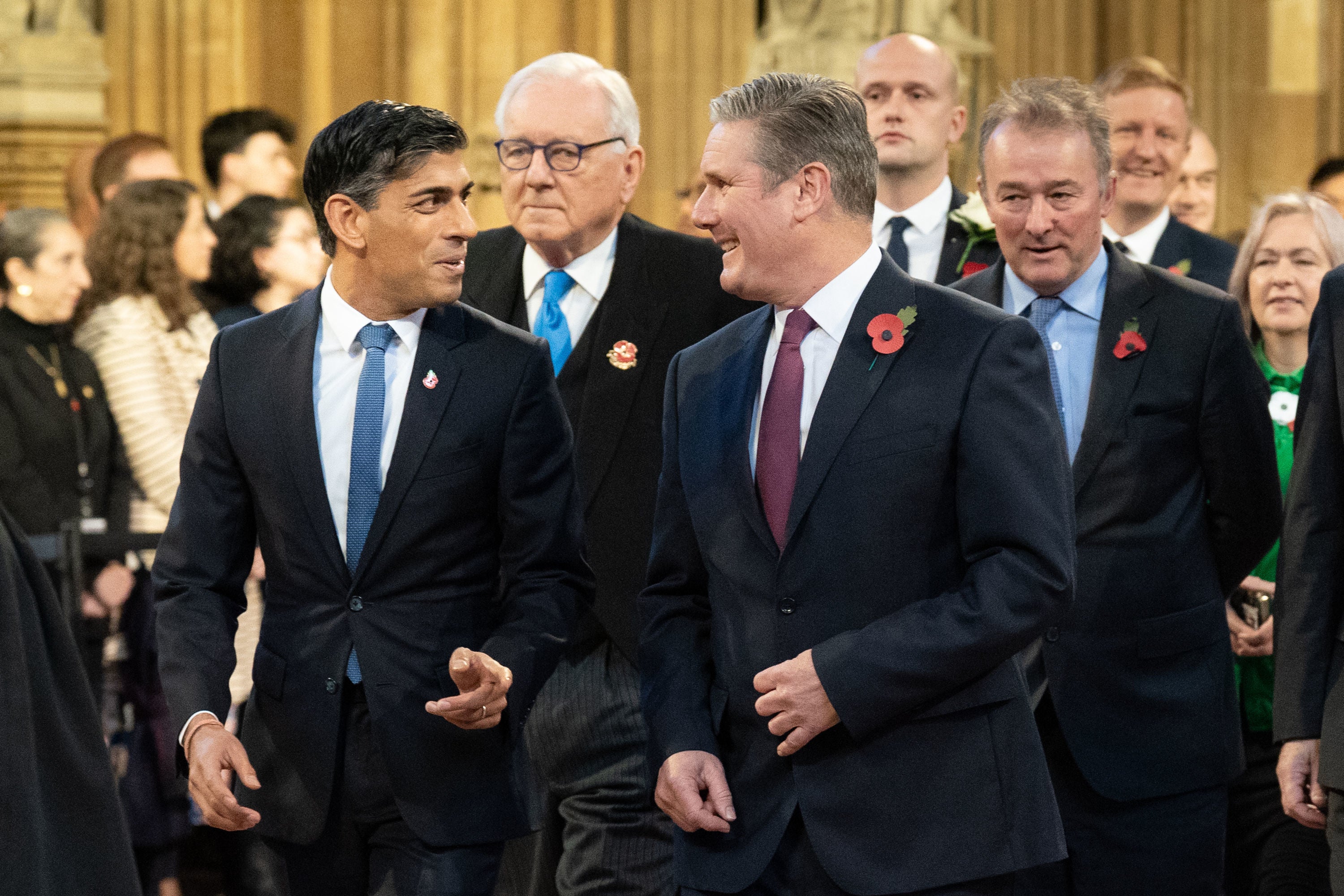Road to the election: Can the Tories cut Labour’s poll lead before it’s too late?
After an underwhelming King’s Speech, what opportunities remain for the prime minister to turn his party’s fortunes around before a general election? Sean O’Grady explains how the next year could unfurl


Given its timing in the electoral cycle, the King’s Speech wasn’t an ideal base from which to launch any kind of political offensive. The last party conference probably was, but it’s fair to say the prime minister’s pitch to the country that he is the candidate of change didn’t make the political weather. Still, all is not lost, and the weeks and months ahead will offer opportunities to at least erode Labour’s lead. So what may be expected on the road to the next election?
Some of these new laws in the King’s Speech will help the Tories?
They ought to – a bit. The crime measures and making sure that “life means life” for murderers is the fulfilment of a long-held Tory ambition cherished ever since the effective abolition of the death penalty in 1967. If nothing else, it will cheer up the base, depressed at the loss of Boris Johnson and Liz Truss. The same may go for some of the other policies, such as reform of leasehold and a ban on live animal exports, and they should also like the liberalisation of offshore oil and gas licensing. But the trouble is that the voters tend to be ungrateful types, happy to pocket what they like and still demanding more. And the laws don’t on the whole impact on most people’s most pressing concerns – inflation and the cost of living crisis, the NHS, migration and crime more generally.
What about the autumn statement?
The chancellor, Jeremy Hunt, is making pessimistic noises about tax cuts and boosts to public spending, and the background is unpromising. The biggest single factor now exerting pressure on the public finances is the increase in interest rates, so the cost of servicing the £2.6 trillion national debt has spiralled upwards – well over £100bn, and more than the nation spends on education. Hunt and Sunak will need to be wary of Tory rebels led by Liz Truss willing to wreck the package if there is anything in it that increases the tax burden.
How about a reshuffle?
Always a useful way of freshening a government, and it would do Sunak no harm to get some more attractive and talented people into his team. Unfortunately, he has a couple of problems. First, his internal position is so weak he cannot afford to upset some of the more awkward factions in his party. Hence the otherwise inexplicable presence of Suella Braverman, darling of the right, in the Home Office. Sunak might also be a little conscious of the degree of churn in the ministries during the past few momentous years – new ministers need time to establish themselves and master their portfolios. Still, who would miss Steve Barclay, beleaguered health secretary, the gaffe-prone Therese Coffey at Defra, or the famously unthanked Gillian Keegan at education? As he looks forward to a challenging election campaign, Sunak would also have to ask himself if Greg Hands, party chair, is the best chap for the job.
January?
A big moment. The turn of the year is audit time for Sunak’s five pledges on halving inflation, growing the economy, government debt falling, cutting NHS waiting losses and stopping the boats. By now it’s fairly clear that he will pass on inflation, scrape through on growth and debt, and fail on waiting lists and migration. The main problem is that people won’t care, because they don’t feel confident about the future.
Any more by-elections?
Yes, though legal factors preclude speculating about all the possibilities. The recent suspension of Peter Bone from the House of Commons will trigger a recall petition in Wellingborough, and the same may happen in Blackpool South when the Commons Standards Committee completes its investigations into MP Scott Benton’s lobbying activities. Both seats are eminently winnable by Labour. If possible, it would benefit the Tories to lose them during the festive season, when the humiliations might be least noticed.
The next Budget then, in March 2024? Timely tax cuts then?
Yes, inevitably, but only minor and symbolic ones. Take-home pay is not about to get a major boost. As an electoral tactic, Hunt could announce some more impressive tax cuts – but they would be implemented only after the general election and only if the Tories were returned to power. How much credibility such promises carry is debatable, but it’s all they’ve got.
By the way, it will be Hunt delivering the Budget. The last briefing from Number 10 indicated that: “The chancellor will be delivering the autumn statement in a few weeks’ time and the Budget next spring,”
The local elections?
If they had a stronger candidate and better luck the Tories might have been able to look forward to a famous success in London and chucking Sadiq Khan out of City Hall. However, Susan Hall hasn’t had the impact she might have hoped for after the Uxbridge by-election showed how unpopular the ultra-low-emission zone (Ulez) is in outer London. Khan enjoys a 50 per cent to 25 per cent lead over Hall, and there’s no reason to see that disappearing by polling day.
When will the election be?
Probably in October 2024, on the hope that the economy will spontaneously improve. Very Micawberish, and things might easily get worse. Besides, the country might even punish the Tories harder for postponing the inevitable. Time for change is the sort of urge that grows more powerful with every day that passes.






Join our commenting forum
Join thought-provoking conversations, follow other Independent readers and see their replies
Comments